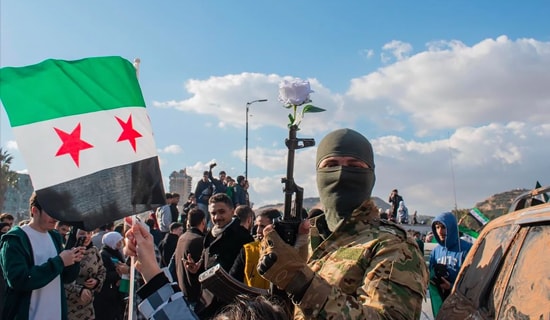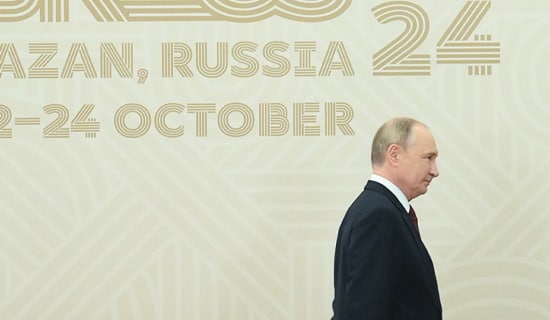Prior to the February 2004 elections for the Seventh Majlis, or parliament, in Iran, the Guardian Council disqualified thousands of reformist candidates, among them senior Majlis members seeking reelection. [1] As expected, following the mass disqualification, most new Majlis members were from the conservative stream. [2]
The disqualification enraged many reformist Majlis members, and over 100 of them resigned in protest. In addition, some 80 of the disqualified candidates demanded that the Guardian Council explain in detail the reasons for their disqualification.
The Guardian Council disqualifications fired up the latent conflict between Majlis Chairman Medhi Karrubi and Guardian Council Secretary Ayatollah Ahmad Jannati. The following is a review of the Iranian media on the mass disqualification and its aftermath:
Ayatollah Jannati: The Demand to Explain Disqualifications is 'Illogical'
In his sermon on April 23, 2004, Guardian Council Secretary Ayatollah Ahmad Jannati defined the demand by reformist candidates to explain in detail the reasons for their disqualification as "illogical" and said that the council would not respond to this request. At the same time, Jannati said that the council would provide a reply if the Judiciary, also a conservative body, asked it to do so.
Jannati explained that "it is illogical for a group of disqualified candidates to challenge the decisions made by the most senior body with the authority to discuss and make decisions on issues regarding the candidates' qualifications… The February 20 parliamentary elections were actually a slap in the face to [Iran's] enemies, and a great victory for Islam…." [3]
Jannati explained in general terms that the candidates' unsuitability stemmed from reasons of "financial and moral corruption, espionage and security, smuggling, and matters of that kind." [4]
Majlis Chairman Calls for Comprehensive Investigation
In a speech in the Majlis, Majlis Chairman Medhi Karrubi attacked Jannati's statement and called on him to refrain from "generalizations, false accusations, and slander." Karrubi stressed that "the fact is that Mr. Jannati has no logical arguments on this issue. Instead, he should have been courageous and said that the mass disqualification of candidates for the Seventh Majlis was planned in advance, and political… Even before the elections we declared that the rights of a number of specific candidates had been violated."
Karrubi called for a comprehensive investigation of the matter, and said that Jannati should be responsible for it because he was Guardian Council secretary. "These are not the last elections, and there will always be more elections in years to come. This is because the architect of the Islamic revolution [Ayatollah Khomeini] set out the constitution that calls for holding national elections always. Even the acting leader [Khamenei] said that the country's top officials are nominated via elections … and stressed that elections must take place on time and that all the political groups must be given a chance to take part in them."
'If a Court Sentences a Man to Be Flogged, Don't They Tell Him Why?'
Karrubi continued, "I have a complaint for the sources of authority. [5] They know that I always defend them, but they must think about the honor of the clerics. Why can one cleric [Jannati] disqualify over 2,000 [candidates], accuse them, judge them, and [say they are] corrupt?… We accept that among 2,000, perhaps a number are indeed corrupt … but why reject the qualifications of good people? You must say why – even to those who are unqualified and corrupt…
"What does this resemble? If for example a court sentences a man to be flogged, don't they tell him why? Do they grab him by the collar and flog him without telling him anything? Imam [Khomeini] said that if a condemned man is slapped in excitement, he has the right to punish [the one who slapped him]. Such sweeping accusations are nothing more than contempt for the clerics.
"We have only one month left here [in the Majlis]. But we will always be in Iran. I came into the world in Iran, and, God willing, it is in the land of Iran that I will be buried. Here is our land, but to the people I say that neither the religion nor the clerics are responsible [for what Ayatollah Jannati did]. By clerics I mean [Ayatollah] Motahhari, and [Ayatollahs] Beheshti, Bahonar, and Khamenei. [6] By clerics, I [also mean] Imam Khomeini.
"I have a complaint against the sources of emulation. Why do they give permission to one cleric [Jannati] to accuse so many in such a way? I ask in all honesty, why is Mr. Astana unqualified? He was a parliamentary representative from the Third through the Fifth [Majlis], and was qualified to run in the elections for the Sixth Majlis. Is he among [those] who was flogged and accused of financial [corruption]? Does he face a court ruling?
"Mr. Jannati, please tell us: Why did you disqualify Mr. 'Anayat Husseini Boroujerdi, who is also the father of a Shahid [martyr]? … What is his crime? He had one child who became a martyr… Tell us why you rejected him...
"Why do you affront the honor of the clerics? If you think I am accusing you, appeal to a court. I will come and give an answer …" [7]
A week later, Chairman Karrubi again went on the offensive against the Guardian Council: "Had the disqualifications been based on a clear standard, that would be all right. But when the rights of a certain group are violated in the elections process, it is like stopping a competitor midway." Karrubi added that each body in the regime should be run by people elected by the public. [8]
Expediency Council Chairman Rafsanjani: Explain the Disqualifications
It should be noted that former president and current Expediency Council Chairman Ali Akbar Hashemi Rafsanjani, acentral conservative figure in the Iranian regime, accepted Karrubi's demand, saying that the required documents must be provided to disqualified candidates who want an explanation. [9]
Guardian Council Ignores Imam Khomeini's Guidelines
In a 47-page letter to Iranian youth, Iranian President Mahammad Khatami also mentioned, albeit indirectly, the mass disqualification of reformist candidates, criticizing how the Guardian Council was being run. Khatami said that some are trying to advance a traditional interpretation of Islam in the name of Imam Khomeini, and to prevent any other interpretation. "These people want to prevent society from free thinking, in the name of Islam. Some are trying to excessively support the Imam [Khomeini] in the Guardian Council, while they ignore the warnings he issued during his life to the Guardian Council..." [10]
Interior Minister Musawi-Lari: 'The Guardian Council Cannot Do Whatever it Wishes'
Interior Minister Abd Al-Wahid Musawi-Lari, who is close to President Khatami, expressed amazement at Ayatollah Jannati's statements, saying: 'The rule of law is transparent. The Guardian Council cannot do whatever it wishes, and it is obligated to officially declare why it rejected candidates..." [11]
Reactions in the Media: Jannati Must Explain
In an editorial, the centrist daily Entekhabasked by what logic Jannati had rejected the candidates' right to know the reasons for their disqualification. The newspaper noted that it is unfair to disqualify candidates and not tell them officially why. Jannati's justification for doing so, wrote the paper, was completely intolerable. [12]
The reformist daily Nassim-e Saba said that Jannati's words were "very illogical" and that "all society mistrusts them." [13] The reformist daily Seday-e 'Edalatwondered by what standard the Guardian Council justified its actions, and stated that Jannati must explain this standard to the public. [14]
Conservative Columnist: 'The Guardian Council Must Present the Logical and Constitutional Reasons for Disqualification'
Nasser Imani wrote in his column in the conservative daily Resalat that because Jannati said that some of the reasons for the candidates' disqualifications were security-related, a detailed report could not be expected for reasons of state security. With regard to the disqualification related to financial or moral corruption or criminality, he said that the newspapers had already extensively covered the crimes of any candidate involved in crime, and that Jannati's logic was that there is no need for further explanation. "Apparently," wrote Imani, "the Guardian Council's motives for not publishing the reasons [for the disqualification] were fear of the outcome [of publishing them]."
At the same time, Imani concluded that due to "the need to prevent non-believers from entering the regime, the Guardian Council must announce the reasons for disqualification, even if most are published later in public by the people. The Guardian Council must present the logical and constitutional reasons for disqualifying candidates. The advantage in doing so exceeds the price, as thus the Guardian Council will advance from the place of a closed and restricted circle to a responsible and responsive position – even if part of the [Iranian] political arena does not accept its logic." [15]
[1] The Guardian Council is a conservative body appointed byspiritual leader Ali Khamenei. The council has the authority to determine whether the Majlis' rulings are compatible with Shari'a law, and can revoke laws passed by the Majlis and disquilify candidates for election. Relations between the council and the largely reformist Sixth Majlis were tense.
[2] The voter turnout for these elections was very low in comparison with previous years – about 50%. An analysis of voting patterns in Majlis elections and in the local authorities for the past year shows that reformist supporters preferred not to vote. The conservatives turned out in numbers similar to those in last two elections – that is, some 20%. See Iranian Youth Organization to Supreme Leader Khamenei: 'What A Huge Lie You Are Telling!', April 1, 2004, 'Iranian Youth Organization to Supreme Leader Khamenei: 'What A Huge Lie You Are Telling!''
[3] Mardomsalari (Iran), April 24, 2004.
[4] Aftab-e Yazd, (Iran), April 26, 2004.
[5] He is referring to the religious jurisprudents, who are considered "sources of emulation" (marlij'eh taqlid) in Iran.
[6] Ayatollah Mortheza Motahhari was one of the founders of the Islamic Revolution, and assassinated in 1979 in an attack by the Mujahedeen-e Khalq. Ayatollah Mohammad Hosseini Beheshti, another founder, was secretary-general of the Islamic Republic Party and was assassinated, along with 70 members of the Islamic Republic Party, in 1981. Ayatollah Mohammad Javad Bahonar was Iran's second prime minister and also secretary-general of the Islamic Republic party, and was assassinated in another 1981 bombing.
[7] Aftab-e Yazd (Iran), April 26, 2004.
[8] Aftab-e Yazd (Iran), May 3, 2004.
[9] Jamhouri Eslami (Iran), May 5, 2004
[10] Aftab-e Yazd (Iran), May 4, 2004. http://khabarnameh.gooya.com/politics/archives/009833.php
[11] Aftab-e Yazd (Iran), May 29, 2004.
[12] Entakhab (Iran), April 25, 2004.
[13] Nassim-e Saba (Iran), April 28, 2004.
[14] Seday-e 'Edalat (Iran), April 29, 2004.
[15] Resalat (Iran), April 26, 2004.





